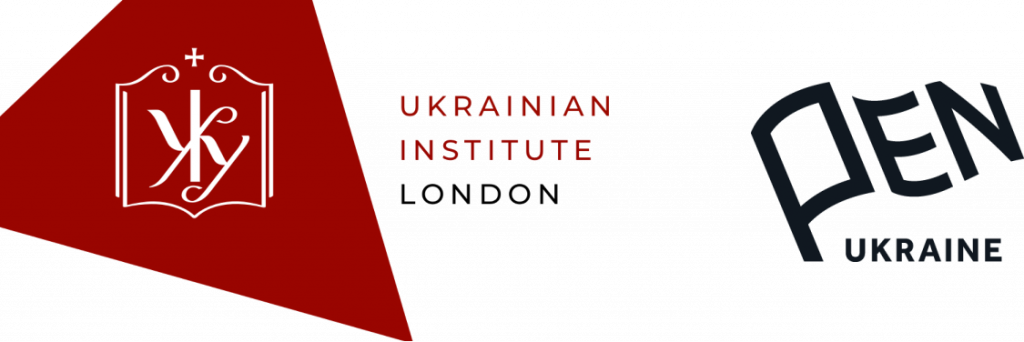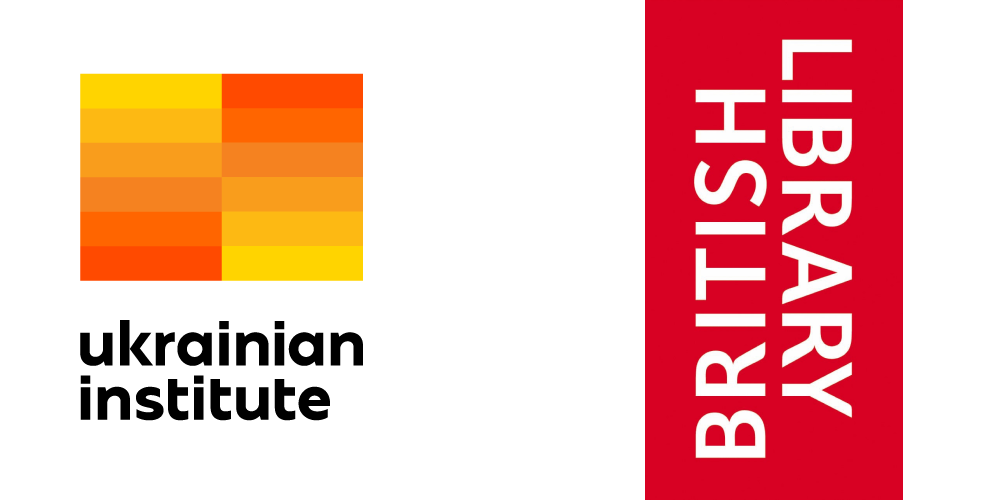UKRAINE LAB
Ukraine has been often called a laboratory when it comes to global challenges in the spheres of environment, information, and security. The site of the worst nuclear catastrophe in history, the primary target of the Kremlin’s troll farms and disinformation campaigns, the country to spark the collapse of the Soviet Union and to stand up to its neo-imperialist successor: Ukraine has been the first to face and, at times, set in motion processes that have worldwide consequences.
After Russia’s full-scale invasion has compromised the global system of security, the value of Ukrainian knowledge and experience can no longer be dismissed. The urgency to learn from Ukraine is now existential for the rest of the world. Ukraine Lab is a writing residency which has presented such an opportunity for six emerging writers from Ukraine and the UK (read curatorial introduction by Sasha Dovzhyk).

During six weeks in July and August 2022, Katia Iakovlenko and Jonny Turnbull, Sofia Cheliak and Kris Michalowicz, Olena Kozar and Phoebe Page have been working in cross-cultural writing pairs on their creative nonfiction pieces. We are proud to present the results of their work.
Focus: Environment
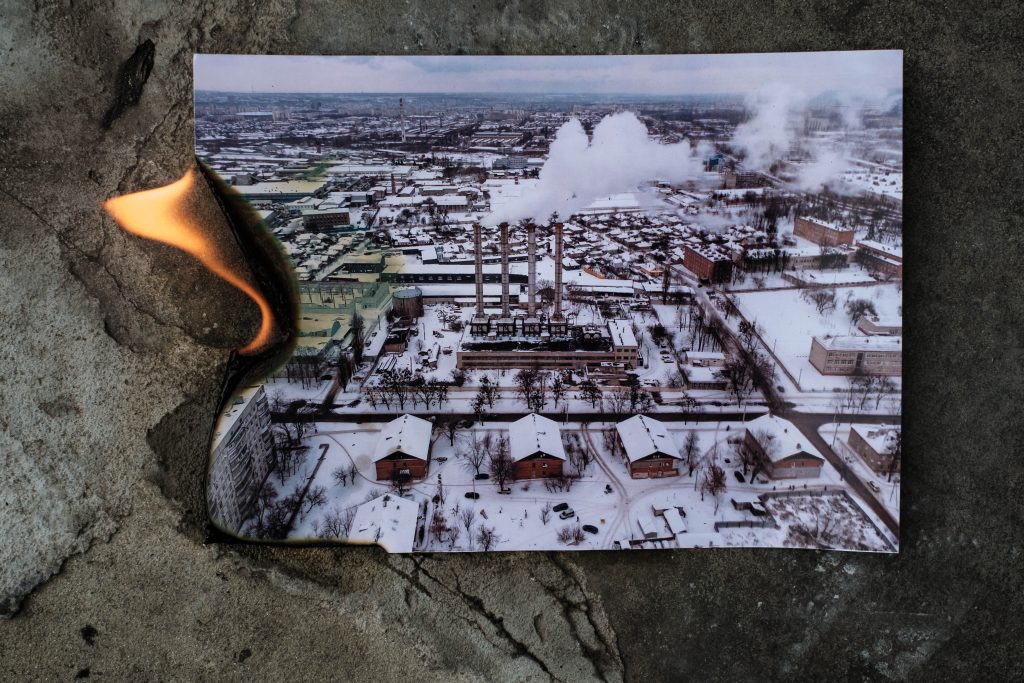
Kateryna Iakovlenko’s ‘Black, White, and Colourless’ tells the story of the war-ravaged industrial region in the east of the country through the elements that shaped it: coal, salt, and gas.
- Read in English in The Ecologist.
- Read in Ukrainian in Українська правда.
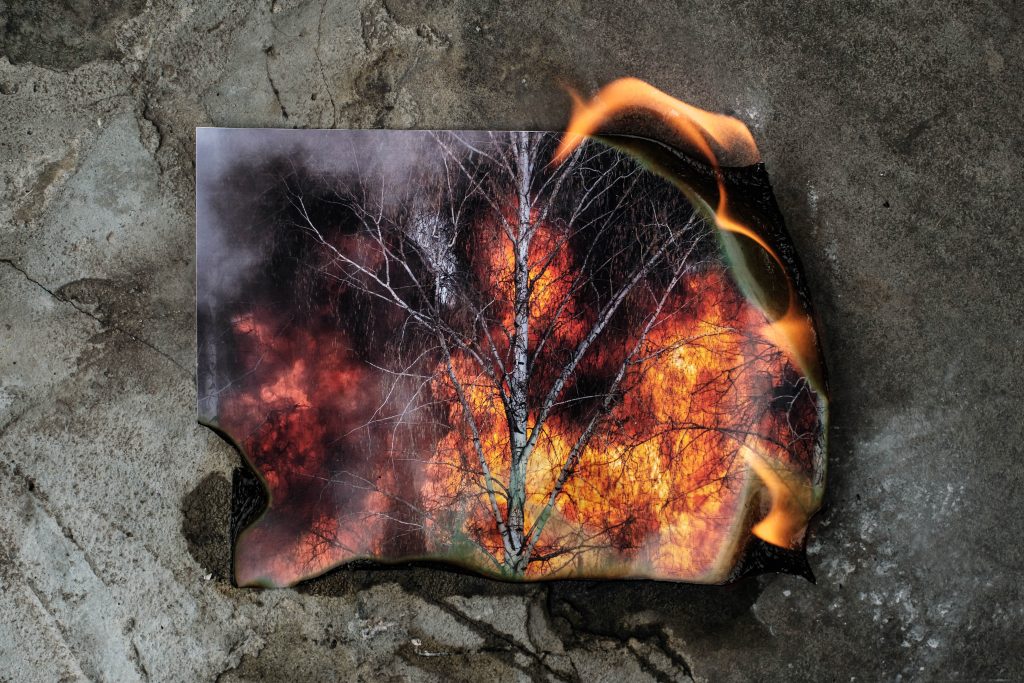
Jonathon Turnbull’s ‘The Kyiv Thickets’ drifts through the wild and weird green spaces in Ukraine’s capital that are brimming with political potential.
- Read in English in The Ecologist.
- Read in Ukrainian in Українська правда.
Focus: War
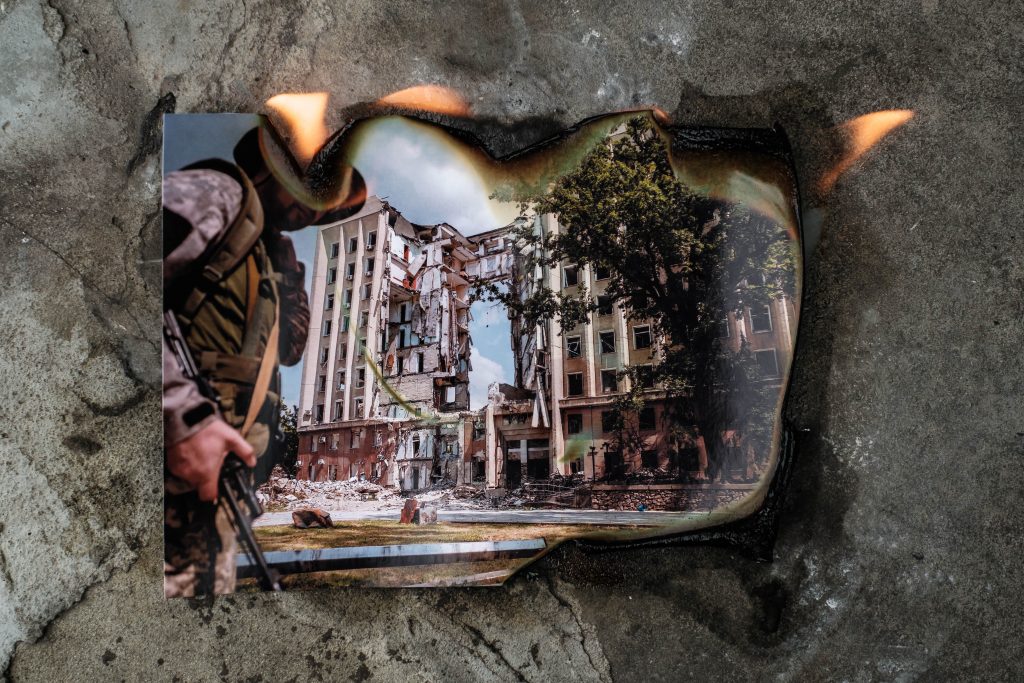
Describing the first days of the full-scale invasion, Sofia Cheliak’s ‘Ukrainian Lottery’ takes a look at those surprising Ukrainians who reject the ready-made model of victimhood and resist the enemy with a sense of humour and purpose.
- Read in English in MIR Online.
- Read in Ukrainian in Тиждень.
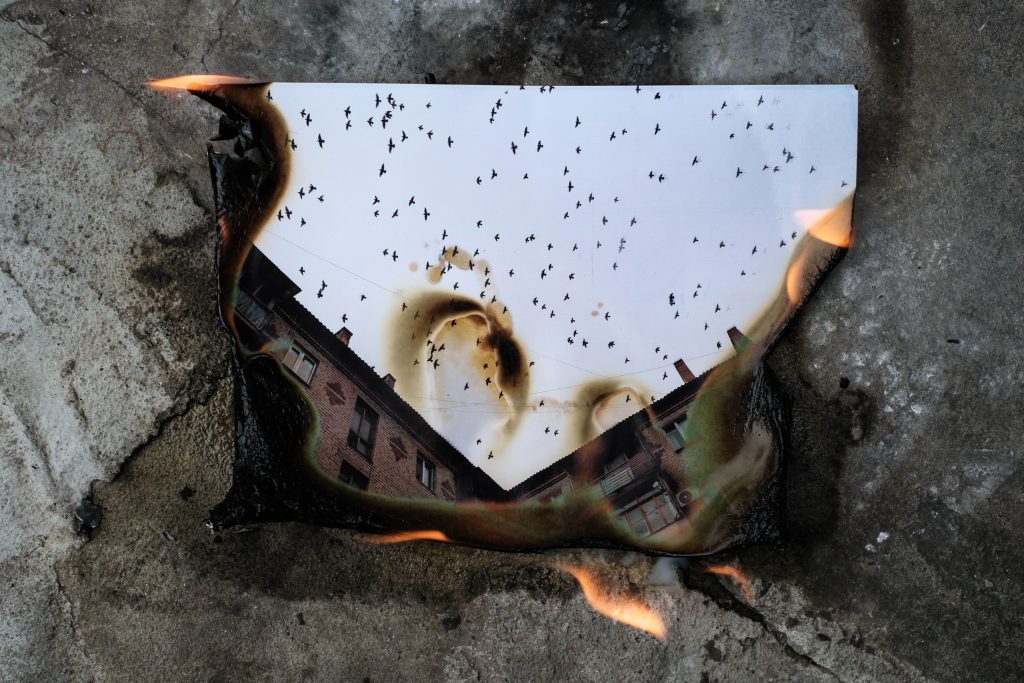
Kris Michalowicz’s moving essay ‘Luhansk, Stolen’ reminds us that Russia’s war of aggression did not start on 24 February 2022 but has been raging on for eight years.
- Read in English in MIR Online.
- Read in Ukrainian in Тиждень.
Focus: Disinformation
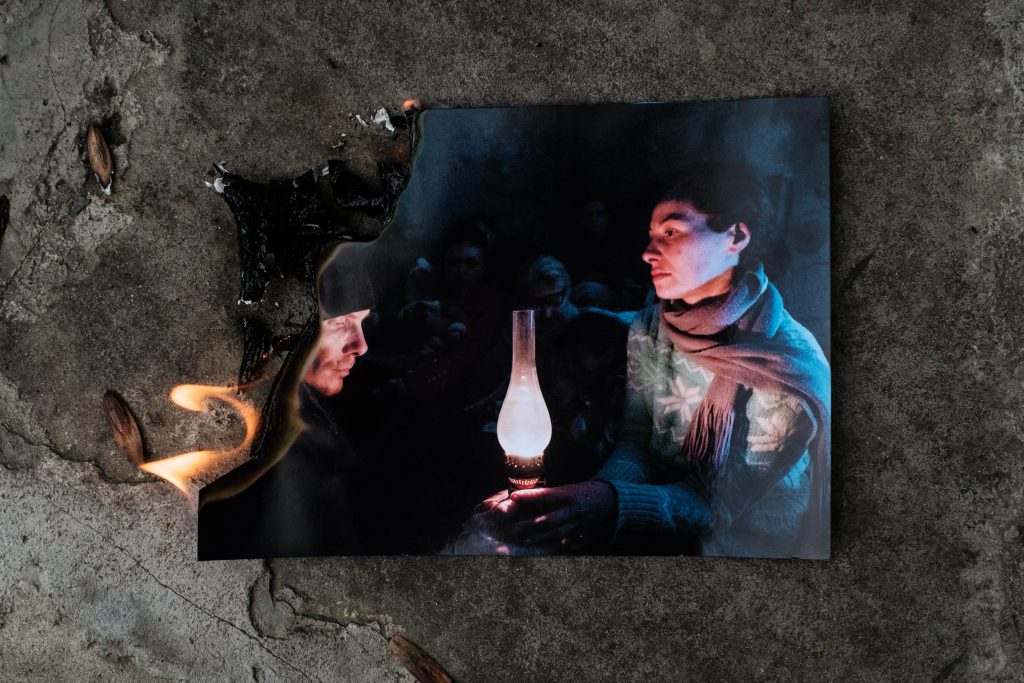
Set in an underground garage and at the receiving end of life-changing news during the battle for Kyiv, Olena Kozar’s essay ‘How Do You Know?’ is a poignant reflection on the effects of information overflow.
- Read in English in openDemocracy.
- Read in Ukrainian in Espreso.
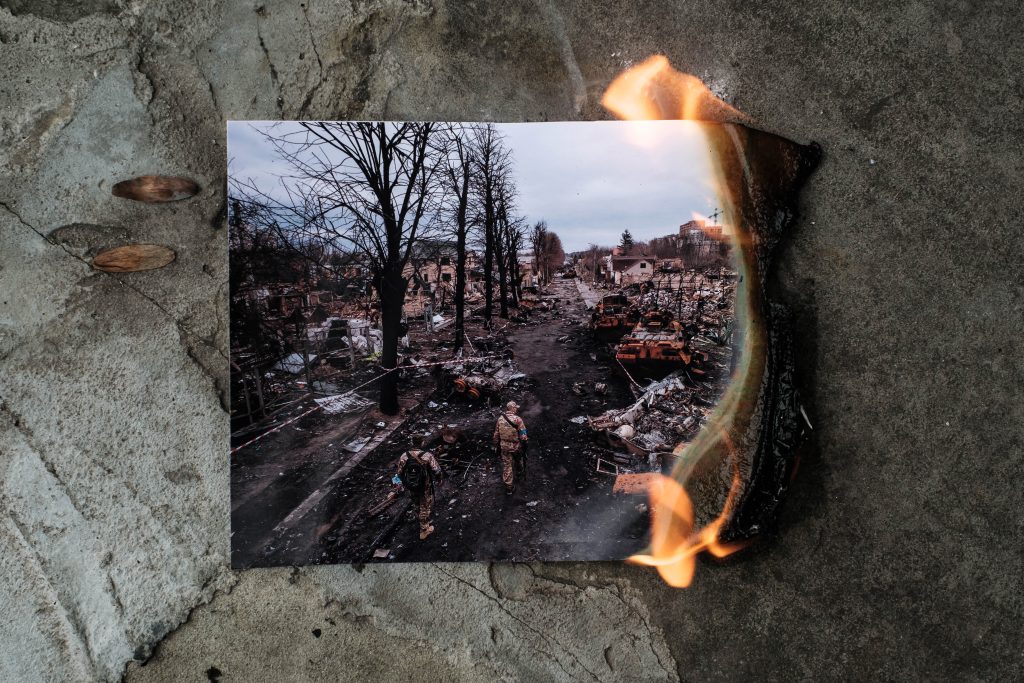
Exposing how our attention and emotions are manipulated, Phoebe Page’s piece ‘On Which Side?’ calls on the western audiences to discern Ukrainian voices amidst the noise of Russian propaganda.
- Read in English in openDemocracy.
- Read in Ukrainian in Espreso.
The powerful visual interpretations are by Mstyslav Chernov and bilingual translations are by Nina Murray.
We are grateful to the dedicated team of seminar leaders for taking part in the educational part of the Ukraine Lab residency: Olesya Khromeychuk (war), Tamara Hundorova (environment), Peter Pomeranzev (disinformation), Julia Bell (creative nonfiction), David Savill (empathy), Iryna Shuvalova (on writing on Ukraine from beyond its borders), Khobir Wiseman-Goldstein (psychodynamic workshop).
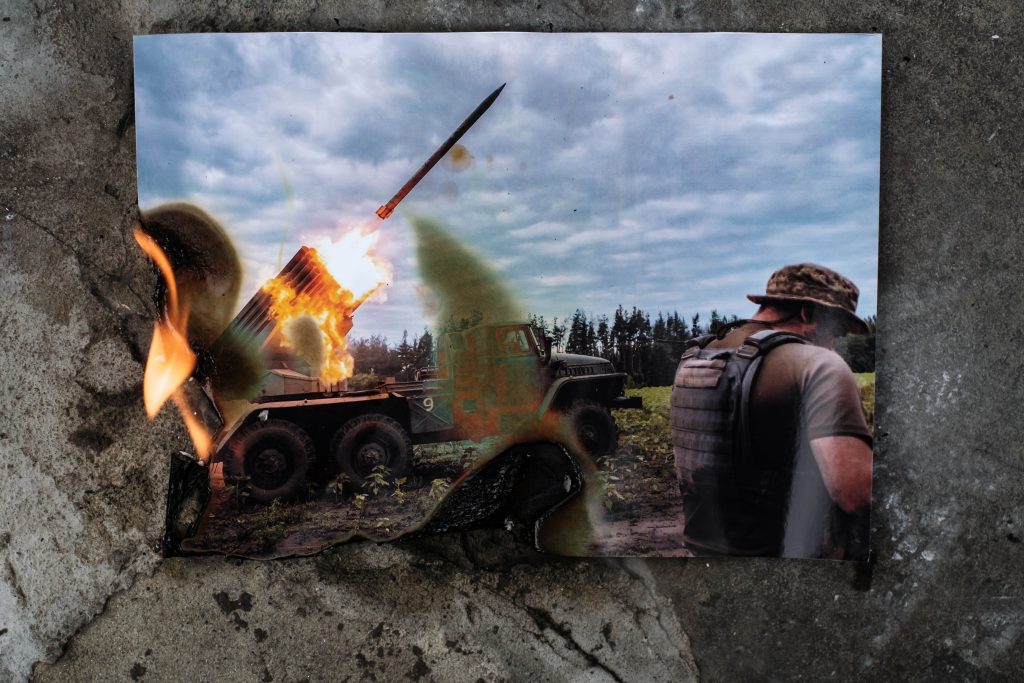
Ukraine Lab Lanuch
The public-facing online Ukraine Lab launch was hosted by the British Library on 9 November 2022. The recording of the event is available via the British Library player here.
The project is run by the Ukrainian Institute London in partnership with PEN Ukraine and the Ukrainian Institute as part of UK/UA Season of Culture, funded by the British Council. Ukraine Lab is curated by Sasha Dovzhyk.
Selection results
We were proud and humbled to receive 104 applications from exceptional writers at the start of their careers and at the peak of their commitment to explore Ukraine through the art of storytelling.
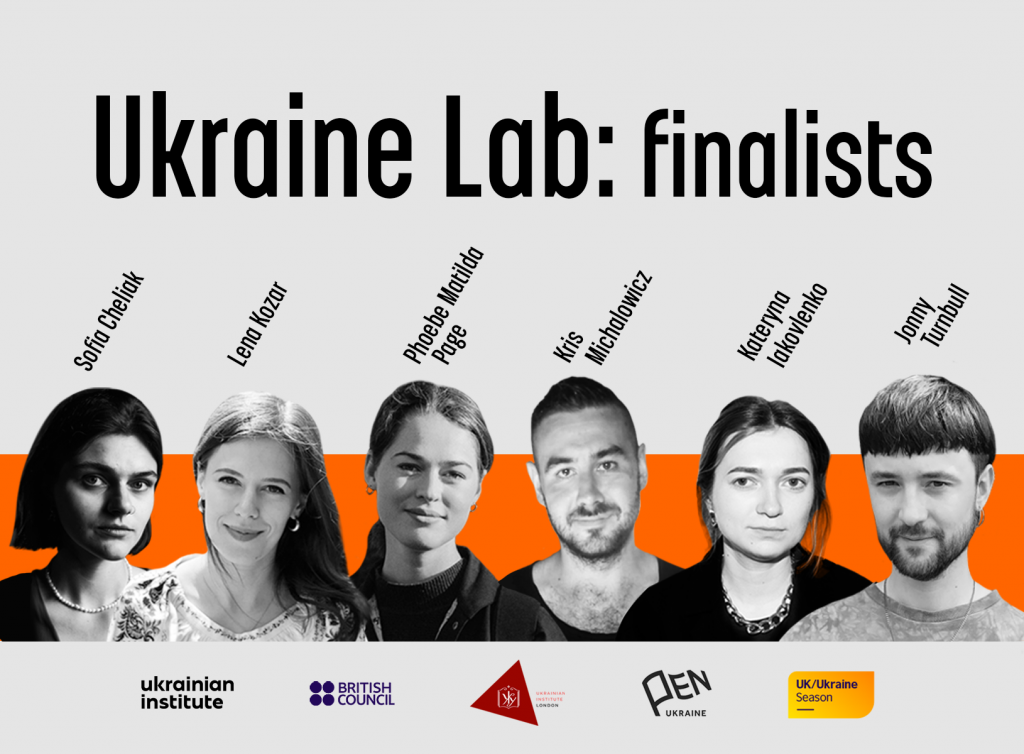
We are delighted to introduce the finalists of the Ukraine Lab selection:
- Sofia Cheliak, who has been documenting Russia’s war crimes and has applied to the residency ‘to get all the possible knowledge and skills to be able to witness’.
- Kris Michalowicz, who is inspired by Ukraine’s unique ‘literature, cuisine, and art, these universal cultural products that are made distinctly Ukrainian by a history of resistance to colonialism and a yearning for freedom’.
- Lena Kozar, who writes, ‘Our language, our history, and our culture are under attack. By writing about our mutual experiences, I strive to be a part of that resistance, which keeps them safe and brings them out to the world’.
- Kateryna Iakovlenko, who has been studying the creation and transformation of the heroic narrative of the Donbas and is looking for ways to ‘endow words with power and struggle’.
- Jonny Turnbull, who has been ‘immersed in the Ukrainian cultural and environmental scene and remains committed to ensuring’ his ‘academic and public writing serves those’ with whom he works ‘in the Chornobyl Exclusion Zone and others across Ukraine’.
- Phoebe Matilda Page, who ‘would like to contribute to efforts to improve understanding of Ukraine’s history and culture, and hopefully encourage people with little knowledge about events leading up to the present-day to educate themselves and learn more’.
The writers chosen to participate in Ukraine Lab will produce creative nonfiction pieces which will tackle global challenges through the prism of Ukraine. The residency will begin on 5 July and last for 6 weeks. The Ukraine Lab creative nonfiction pieces will be published by the media partners and later anthologised.
Call for writers
Ukraine has been often called a laboratory when it comes to many challenges facing humanity today, be it ecological emergencies like the Chornobyl catastrophe, Kremlin-led digital disinformation campaigns, or the impacts of modern war. Ukrainians have responded to each of these issues with resilience and creativity and turned Ukraine into a treasure-trove of cultural resistance strategies. Learning with and from Ukraine is crucial for tackling global challenges in the areas of environment, security, and disinformation in the twenty-first century.
Structure of the residency
Educational part
During the online residency’s educational part, participants will learn about Ukraine’s experiences of cultural resistance from world-leading experts. Thematic online seminars include:
- After Chornobyl: on the cultural landscape of the post-nuclear age (Tamara Hundorova)
- War and Lies: on the Kremlin’s disinformation campaigns (Peter Pomerantsev)
- Theatre of War: on artistic responses to the war trauma (Olesya Khromeychuk)
- Pscyhodynamic workshop: on non-verbal representations of the UKRAINE LAB themes (Khobir Wiseman-Goldstein)
- The British Library workshop: on the Ukrainian collections (Katie McElvanney)
Creative part
During the residency’s creative part, the participants will work in three cross-cultural writing pairs. Guided by the UKRAINE LAB curator (Sasha Dovzhyk), they will develop their creative pieces through peer-review sessions and workshops with professional writers from Ukraine (Iryna Shuvalova) and the United Kingdom (Julia Bell). Their texts will be visually interpreted by the photographer Mstyslav Chernov, published by our literary partners in Ukrainian (Krytyka, Korydor, Tyzhden) and English (openDemocracy, MIR, The Ecologist), followed by a bilingual anthology.
English is the working language of the residency. The creative nonfiction pieces will be originally written in the writers’ first languages (Ukrainian and English) and then translated professionally. All workshops and peer-review sessions will be held in English.
Remuneration
Each UK-based writer will be paid a fee of £2,340. The participants are expected to work approximately 3 days per week for the six weeks of the residency. Provisional dates of the online residency will be 4 July – 15 August 2022.
Eligibility criteria
- Fluency in English
- Two or more publications (online or in print). These could include short stories, essays and other forms of creative nonfiction. NB: since the residency is aimed at emerging writers, authors who have already published a book will NOT be considered
- Demonstrable interest in cross-cultural dialogue and the UKRAINE LAB themes (environment, disinformation, modern war through the prism of Ukraine)
- The UK-based writers should be residents of the UK.
How to apply
Candidates should complete the online application form, attaching their motivation letter and a sample of writing by 30 May 2022. Please address any questions to the UKRAINE LAB curator Sasha Dovzhyk at dovzhyk@ukrainianinstitute.org.uk.
For the call for Ukraine-based writers, please visit the website of the Ukrainian Institute and PEN Ukraine.
The head image uses Oleksandr Khvostenko-Khvostov’s set design for Mob (adapted from Upton Sinclair’s novel They Call Me Carpenter), 1924. Mystetskyi arsenal, Kyiv, Ukraine.
